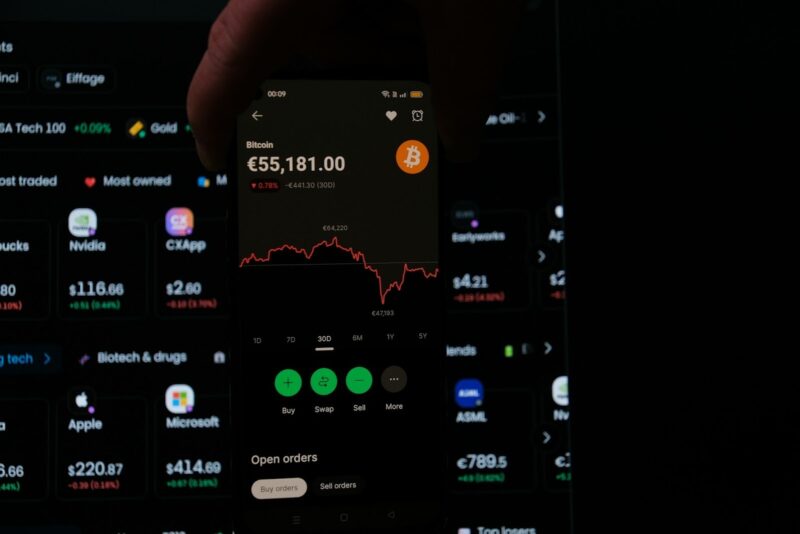Table of Contents
ToggleIn 2006, the Fed used an indicator that relies on inverted yield curves to ascertain the likelihood of a recession. The yields, or interest rates, of US Treasury bonds are called inverted when the long-term rates are lower than the short-term rates – the opposite of a normal scenario. Jonathan Wright, the man who guided the Fed’s approach, admits that his indicator can send off false positive signals. At the end of July 2024, though, he insisted that present circumstances, after a long period of tight monetary policy, are “exactly the economic story behind why the slope of the yield curve does have to forecast power for recessions.” At that time, Wright’s indicator signaled a recession with 70% certainty.
Economists have, in fact, been questioning the reliability of our standard recession indicators altogether. A new indicator, published at the beginning of August 2024 by economists at the University of California Santa Cruz and UC Berkeley, suggests chances are as high as 40% that the US is already in a recession.
Bearing all this in mind, we’d like to discuss how the Bill and Melinda Gates (BMG) Foundation Trust is likely to respond in the event of a recession. This stock portfolio – which is earmarked for Gates’ list of charitable causes – has a pretty good performance record under troubled economic conditions. In the three years ending in March 2024, BMG produced returns of 47%, as compared with the S&P 500’s 32%. These years included 2022, the year when the US economy registered two consecutive quarters of negative growth, fulfilling the technical definition of a recession.
As of June 2024, 87% of BMG’s funds were divided among just five stocks. Let’s take a look at three of them.
Microsoft
Azure – Microsoft’s cloud computing business – is “the single most critical revenue driver over the next ten years as hybrid environments drive mass cloud adoption,” according to Morningstar. It’s certainly true that more and more companies are booking trips to the cloud. This allows them to dump excess workload into spacious data centers, thus freeing their resources for bigger and better things. Being able to do this is becoming increasingly integral to their operations.
This mass migration to the cloud shows all the signs of picking up steam in months and years to come. Cloud services as a market is expected to grow at yearly rate of 21% into 2030, when it will be worth about $1.5 trillion.

Microsoft’s Intelligent Cloud division is growing more rapidly than any of its competitors, but Azure is also outpacing Microsoft’s rivals in the cloud space, namely Amazon Web Services (AWS) and Google Cloud Platform (GCP). Microsoft’s market share in Q1 2024 was holding at 24%, coming in second to AWS’s 31% but comfortably beating GCP’s 11%. Looking at growth for their customer base from 2023 to 2024, it was at an apparently modest 14.2% – much less than either competitor – but this discounts the influence of 310 new enterprise clients, who packed large clout in boosting their market share.
Microsoft customers exhibit a healthy degree of product loyalty. Office and Excel are considered staples among their tens of thousands of clients, who would not easily move on to alternatives. In the meantime, these applications keep a steady flow of cash coming in, with which to fund infrastructure growth for the cloud. The strong integration of the company’s various applications is definitely good news for them should the economy nosedive. Indeed, we see that 64% of Azure clients use Azure exclusively.
If a recession gets underway, consumer discretionary items are likely to be left in the cold, which could hurt Microsoft in some of its segments, notably gaming. However, what the company has going for it is a fairly even spread of income streams, so no particular segment is leaned on too much. As of August 2024, Azure was estimated to bring in only 26% of the firm’s total revenue, even though it’s been the main growth driver in the last few years. Compare this with Alphabet’s advertising division, which brought home 76.2% of the company’s bread in Q2 2024. Over at Apple in fiscal Q3 2024, iPhone sales were the source of as much as 45% of company revenue.
Berkshire Hathaway
If you’re looking for a stock that flourishes during bear markets, there’s always a solid argument for turning to Berkshire Hathaway, which has time and again outdone the S&P 500 in such environments. Berkshire owns firms that operate in an array of industries, from freight and utilities to manufacturing and retail. The substantial mix of essentials in their portfolio lends it firmness when the economy gets choppy. As of June 2024, the BMG Trust had 16% of its funds sitting in Berkshire.
Berkshire’s insurance company portfolio – which includes Berkshire Hathaway Primary Group, Berkshire Hathaway Reinsurance Group, and Geico – brought in as much as 40% of their operating income in the June quarter. Going back to Q1 2024, Berkshire’s strong financial results were mainly driven by insurance. Normally, as much as one-third of Berkshire’s earnings come in through this less glamorous but highly dependable route.

In Q2 2024, Berkshire’s insurance firms reported hefty premium growth due to improved pricing but also a scarcity of high-cost claims. This made up for some unusual weakness in Berkshire’s energy segment, which posted revenue of only $2.2 billion in the first half of the year. One of the reasons for this was legal action initiated against the company due to wildfires back in 2020 and 2022.
As we mentioned, Berkshire’s forte is the bear market. “Berkshire is normally a defensive stock, rising when the markets are in the tank,” says Morningstar’s Greggory Warren. This makes it harder to understand the remarkable surge of the stock in 2024, given the fact that the broader market was driven higher by technology companies. It’s true that Berkshire owns a piece of Big Tech giant Apple, but CEO Warren Buffett cut down on Apple stock by 13% in Q1 and then by 50% in Q2. Buffett is not a legend in the financial world for nothing, and this was apparent by the end of August 2024, when, despite the reduced tech exposure, Berkshire shares had gained as much as 30% in share trading for the year so far.
Caterpillar
At mid-year 2024, 5% of the BMG trust was devoted to Caterpillar – the almost century-old maker of construction and mining equipment, diesel and natural gas engines, and diesel-electric locomotives. Because of the nature of the business, Caterpillar’s performance is often tied to the state of the economy. When the economy is doing well, construction tends to be more of a priority, which Caterpillar enjoys. During the downturns, though, their earnings take a dip.
Still, there is reason to believe in Caterpillar, even in the event the economy takes a turn for the worse. Starting with the 2021 Infrastructure Investment and Jobs Act and continuing in 2022 with the passing of the Inflation Reduction Act, the US government pledged hundreds of billions of dollars in funding for infrastructure and onshoring developments, all with the aim of bolstering America’s self-sufficiency on the global stage. This could prove bullish for the industrial sector after a year of lagging the overall market in 2023 and may tend to counteract the effects of a weakening economy, should one materialize.
2023 was a great year for Caterpillar in share trading. Fiscal years 2021, 2022, and 2023 all brought the firm revenue growth well into the double digits. Results for Q1 were, in light of this, not bad at all, even though analysts sounded the alarm at weak revenue growth at the beginning of fiscal year 2024. Q1 sales clocked in at $15.8 billion, which didn’t represent much of a leap from last year’s period, but they were still in the region of their highest level ever.
CEO Jim Umpleby keeps on repurchasing Caterpillar stock, which lowers the share count and increases their value. In June 2024, he marked down another $20 billion for this purpose. By that time, Caterpillar stock had added a robust 11% for the year in share trading. Looking forward, analysts believe looser monetary policy from the Fed will produce a tailwind for construction spending.
The Bottom Line
The BMG Trust’s third-largest holding is a firm that’s, perhaps, the most recession-resistant of all: Waste Management – the collectors of refuse who are needed in all economic climates. But even among the three stocks we’ve looked at today, we’ve seen good reason to believe the portfolio would retain its overall health in a recession. This is not the first time Bill Gates’ business sense has shown distinct signs of soundness.
If you’re interested in trading shares online in a secure, regulated environment, and one permeated with an atmosphere of learning and positivity, why not try out iFOREX Europe – a trusted name in the business for over 25 years?





